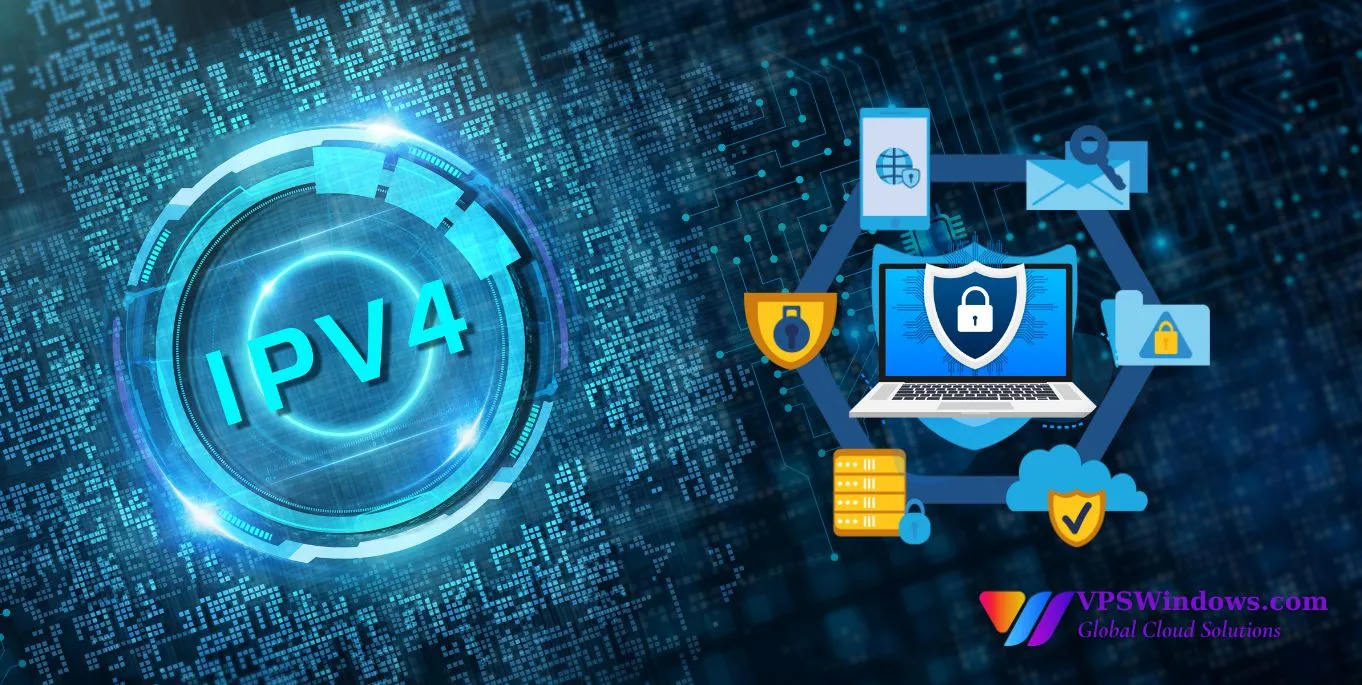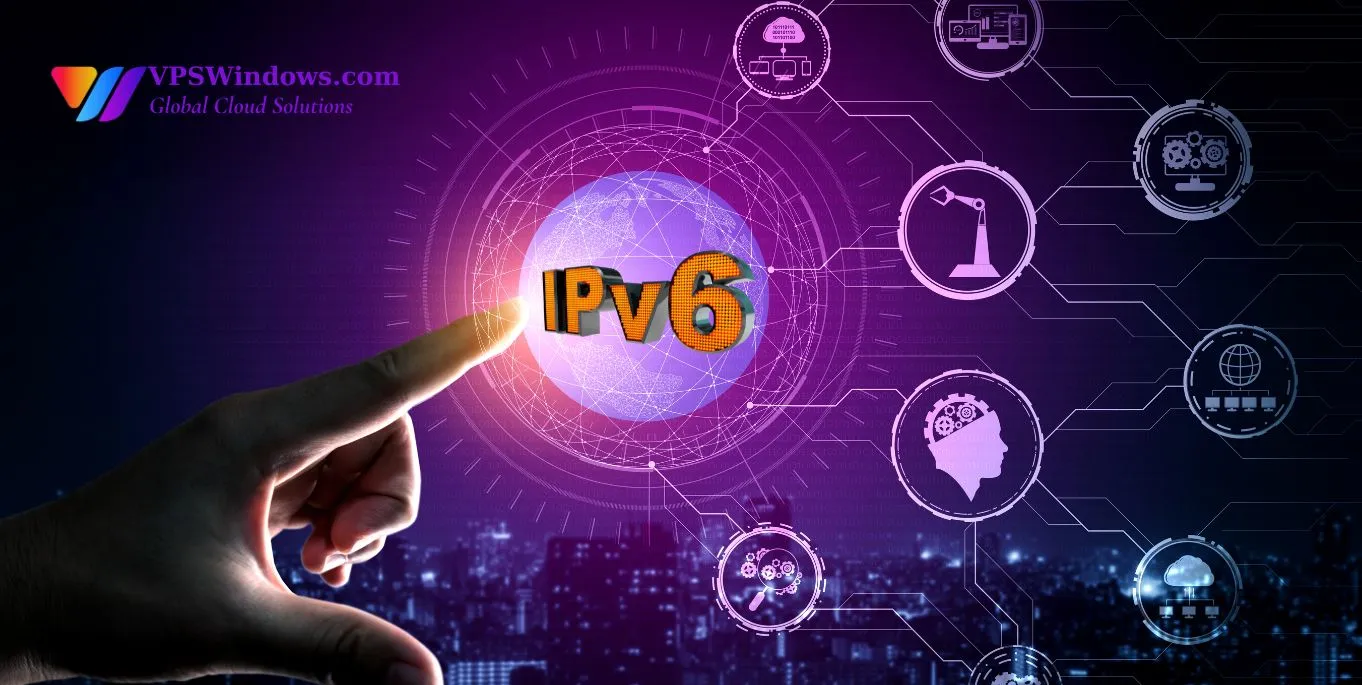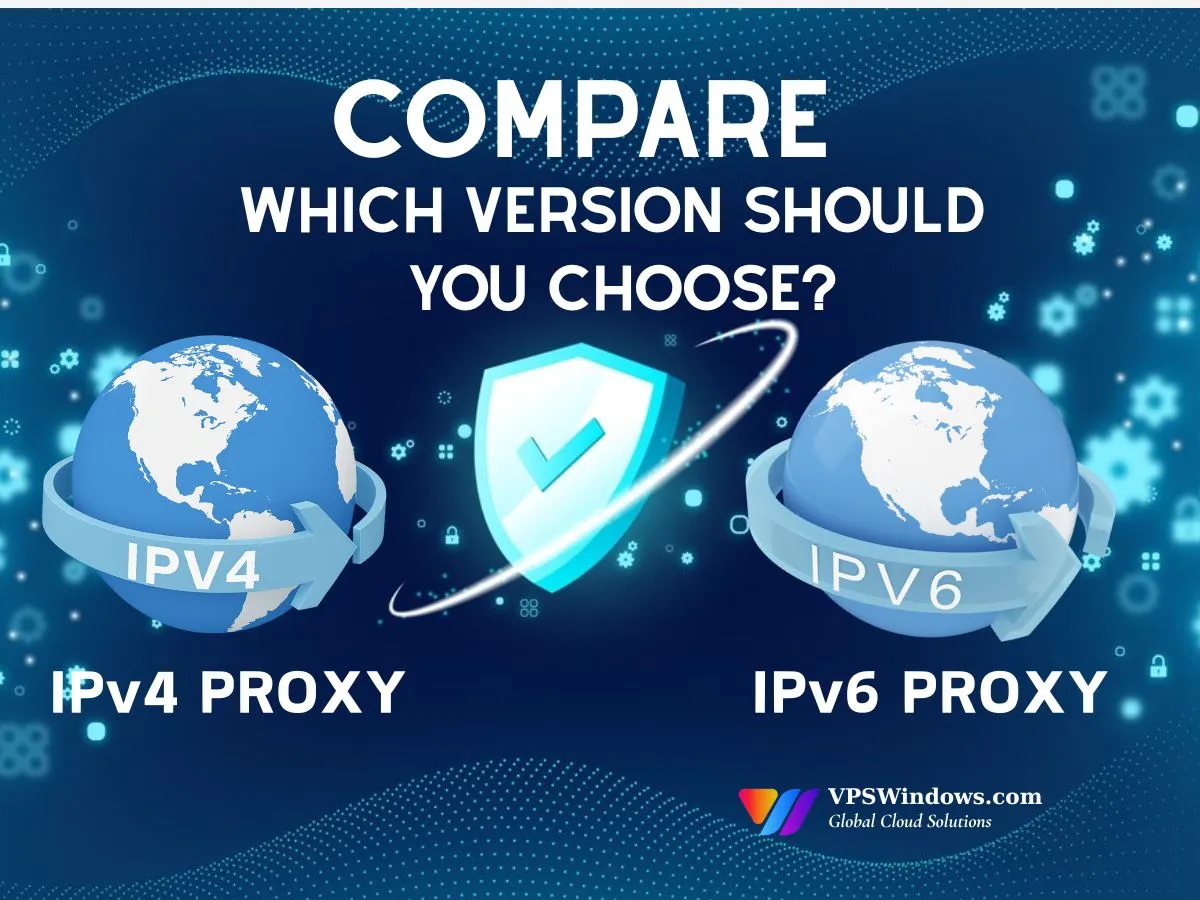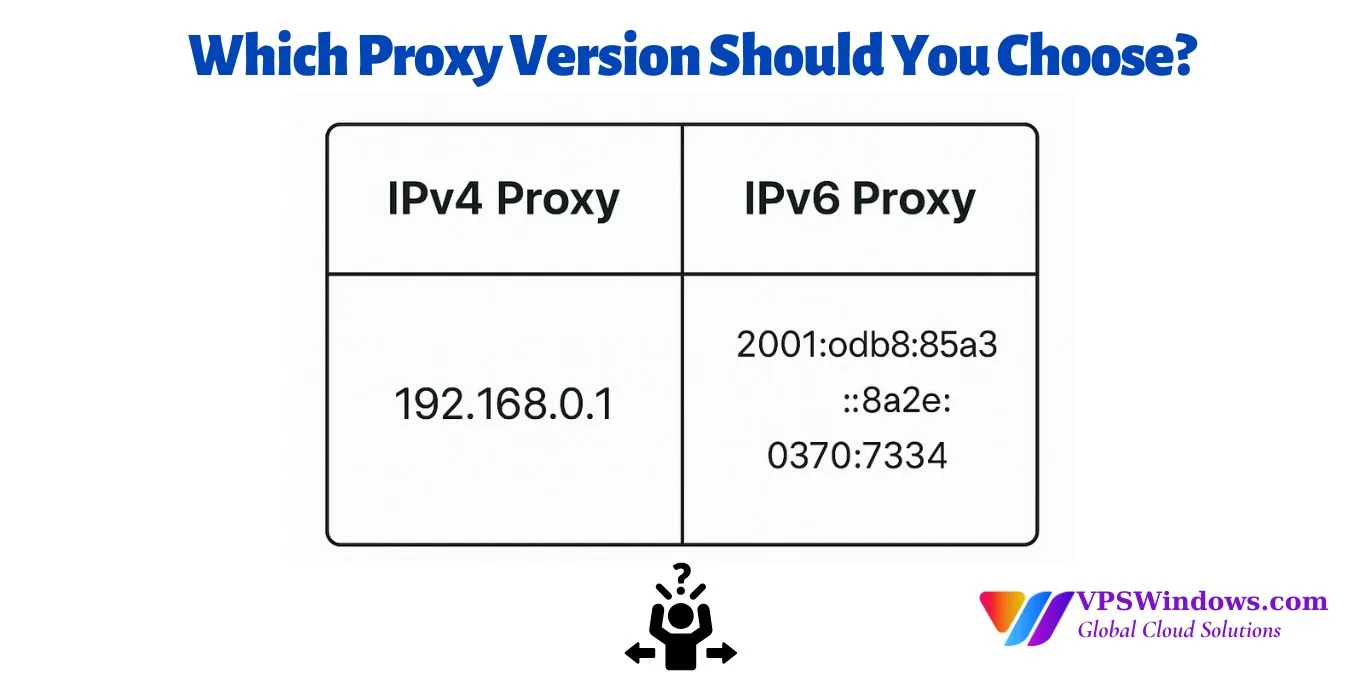The choice between IPv6 and IPv4 proxies is a significant decision for any online activity requiring anonymity and secure internet access. As the digital landscape rapidly evolves, so do the technologies that underpin it. This article will explore the features, advantages, and limitations of both IPv6 and IPv4 proxies. Understanding their distinct characteristics is crucial for selecting the most suitable proxy for your needs, whether it’s for web scraping, accessing geo-restricted content, or enhancing online privacy.
What is an IPv4 Proxy?
An private IPv4 proxy is a specialized server that utilizes Internet Protocol version 4 (IPv4) addresses to relay requests from a user to the internet. The IPv4 protocol is based on a 32-bit addressing scheme, facilitating approximately 4.3 billion unique IP addresses. IPv4 has been the cornerstone of online communications since its inception, proving its reliability and stability. These proxies work by masking the user’s original IP address. When users connect to a website, their internet traffic is routed through a designated IPv4 address provided by the proxy server.

Key Characteristics of IPv4 Proxies
- Address Space: With a limited scope of around 4.3 billion addresses, IPv4 proxies often face issues of address exhaustion and scarcity due to a burgeoning number of internet-connected devices.
- Widespread Compatibility: IPv4 proxies are compatible with virtually all websites and internet services. This widespread acceptance allows users to access a vast array of online resources without encountering substantial barriers.
- Costliness: As the address space diminishes, IPv4 proxies become increasingly expensive to acquire. Prices have surged significantly due to high demand, particularly in applications demanding multiple unique IP addresses, such as web scraping or social media management.
Use Cases for IPv4 Proxies
- Web Scraping: Many companies rely on IPv4 proxies to gather data from public websites without triggering security systems.
- Social Media Management: Businesses often use these proxies to manage multiple accounts without risking bans or suspensions from platforms.
- Ad Verification: Ensuring advertisements appear as intended across various geographical locations is a common use case for IPv4 proxies, enabling transparency in digital advertising.
Security Considerations
IPv4 proxies can potentially expose users to risks associated with shared IP addresses. Since an IPv4 address can be shared among multiple users, this can lead to issues where one user’s activities might compromise another. Consequently, routine monitoring and careful management of proxy assignments are necessary to mitigate potential threats.
Performance
The performance of IPv4 proxies has been historically stable, maintaining a steady speed that users depend upon. However, the increasing pressure on the IPv4 address space may lead to instances of slower response times due to congested proxy servers.
What is an IPv6 Proxy?
IPv6 proxies utilize Internet Protocol version 6 (IPv6), which employs a 128-bit addressing scheme, allowing for approximately 340 undecillion unique addresses. This extensive address pool resolves the limitations posed by IPv4 address exhaustion and provides a more sustainable infrastructure for future internet expansion. IPv6 proxies, like their IPv4 counterparts, mask the users’ original IP addresses, allowing for anonymity and access to restricted content.

Key Characteristics of IPv6 Proxies
- Enhanced Address Space: The staggering number of available IPv6 addresses is one of its most notable advantages. With approximately 340 undecillion addresses, IPv6 supports the growing demand for unique IP addresses among internet-connected devices.
- Improved Security Features: IPv6 inherently supports IPsec, a suite of protocols for securing internet protocol (IP) communications through authentication and encryption. By default, communication over IPv6 can be more secure than with IPv4 proxies.
- Routing Efficiency: IPv6 utilizes more advanced routing protocols that can potentially reduce latency and improve the speed of data transmission, enhancing the overall user experience.
Use Cases for IPv6 Proxies
- Web Scraping and Data Collection: The ability to assign numerous unique IPv6 addresses allows users to conduct extensive web scraping projects without the risk of being blocked due to high request rates.
- Accessing Geo-Restricted Content: With a diverse pool of addresses, IPv6 proxies can facilitate access to content that may only be available in certain regions.
- Future-Proofing Online Operations: As the internet transitions towards IPv6, using IPv6 proxies can ensure long-term compatibility with future web applications and online resources.
Performance and Security
The intrinsic security features of IPv6, such as mandatory IPsec support, provide better protection for data packets, fostering user trust and confidence in online transactions. Furthermore, while performance can vary based on internet infrastructure, many IPv6 proxies exhibit superior routing speeds compared to their IPv4 counterparts, especially in environments with optimal support for IPv6 traffic.
Differences Between IPv4 and IPv6 Proxies
When comparing IPv4 and IPv6 proxies, several critical differences should be considered, particularly in addressing, compatibility, security features, and performance.
| Feature | IPv4 Proxies | IPv6 Proxies |
|---|---|---|
| Address Space | 32-bit (approximately 4.3 billion addresses) | 128-bit (approximately 340 undecillion addresses) |
| Security Features | Optional IPsec | Mandatory IPsec |
| Compatibility | Supports most websites and applications | Growing support, but not universal |
| Cost | Increasingly expensive due to address scarcity | Generally cheaper due to vast address pool |
| Performance | Stable, but may be affected by congestion | Improved routing efficiency and potential speed |
Address Space Availability
IPv4 proxies suffer from address scarcity, while IPv6 proxies offer a virtually limitless supply, crucial for new internet applications and devices. This disparity significantly impacts the long-term usability and practicality of each type of proxy.
Compatibility Issues
Despite IPv4 being widely supported, an increasing number of websites and services are transitioning to IPv6. This migration can lead to occasional compatibility issues for IPv6 users, particularly when accessing legacy systems optimized for IPv4 traffic. As a result, users may encounter disruptions that hinder their access to essential online resources.
Future-Proofing
With the ongoing depletion of IPv4 addresses, the transition toward IPv6 is becoming increasingly favorable for future-proofing operational needs in a growing digital landscape. Organizations looking to stay ahead of the curve should consider the benefits offered by IPv6 proxies in their long-term strategies.
Advantages of IPv4 Proxies
IPv4 proxies have been the cornerstone of internet connectivity for many years and come with several advantages that may benefit certain users or organizations.
Widespread Compatibility
One of the key strengths of IPv4 proxies is their compatibility with the majority of existing internet infrastructure. Since most websites and applications are optimized for IPv4, users can navigate these platforms without encountering substantial barriers. This broad compatibility streamlines everyday tasks, particularly for those engaging in activities relying on legacy systems.
Cost Considerations
While IPv4 address scarcity has driven prices up, there remain scenarios where acquiring IPv4 proxies is worthwhile. They can be invaluable for tasks like web scraping, where functionality across various platforms is critical for success.
Reliable Performance
Established after decades of use, IPv4 proxies provide reliable performance metrics and infrastructure. Users can expect steady speeds and consistent connectivity for most online tasks, making them a solid option for activities that demand stability.
Enhanced Familiarity
Many organizations have spent years integrating IPv4 into their operations. As a result, transitioning to IPv6 may require additional training and adaptation. Continued use of IPv4 allows for a smoother operational experience for teams already proficient in the current infrastructure.
Limitations of IPv4 Proxies
Despite their advantages, IPv4 proxies have significant limitations that users should consider when choosing a proxy type.
Shrinking Address Space
The decreasing availability of IPv4 addresses poses challenges for users requiring multiple unique IP addresses. This scarcity can elevate costs and limit accessibility, impacting businesses operating across multiple platforms.
Potential for IP Blocking
Shared usage of IPv4 addresses can lead to blocks or blacklists, compromising both user privacy and efficiency. When multiple users operate from the same IP, the likelihood of encountering website restrictions increases, potentially disrupting vital online activities.
Security Vulnerabilities
The reliance on shared IPv4 addresses creates security risks, as multiple users’ activities can overlap, exposing data to potential breaches. This issue complicates efforts to maintain robust security protocols.
Compatibility Challenges with Emerging Technologies
As the internet shifts toward IPv6 compatibility, IPv4 proxies may struggle with newer services. The growing number of applications optimized for IPv6 may hinder users relying solely on IPv4 proxies from successfully accessing critical online resources.
Advantages of IPv6 Proxies
The benefits of IPv6 proxies over their IPv4 counterparts are becoming increasingly apparent, particularly in relation to security, scalability, and future internet growth.
Vast Address Space
With IPv6’s expansive address capacity, users can utilize a far greater number of unique IP addresses. This abundance is particularly beneficial for businesses operating in fields requiring dynamic IP addresses for web scraping, testing, or other applications that demand anonymity across numerous connections.
Built-in Security Features
The mandatory IPsec support in IPv6 improves the security of data transmitted over its proxies. Compared to IPv4, where security protocols must be implemented, IPv6 automatically includes encryption and authentication, enhancing data integrity and user privacy during online transactions.
Routing Efficiency
The advanced routing capabilities of IPv6 reduce latency and improve overall performance. As internet traffic increases and demands on bandwidth grow, IPv6’s capacity to facilitate smoother data flow becomes an essential asset for businesses and online services.
Future-Proofing Connectivity
The increasing reliance on connected devices and the IoT necessitate a shift toward IPv6. Adopting IPv6 proxies ensures that businesses and individuals are prepared for future technological advancements, providing compatibility with evolving web services.
Limitations of IPv6 Proxies
While IPv6 proxies offer many advantages, they are not without their limitations, which users should carefully evaluate.
Compatibility Issues
Despite the growing adoption of IPv6, not all websites and services support it fully. As a result, users relying exclusively on IPv6 proxies may face connectivity challenges when accessing IPv4-only platforms, impacting their overall efficiency.
Transition Complexities
The ongoing transition from IPv4 to IPv6 can expose networks to vulnerabilities if not managed properly. Organizations may need to invest in infrastructure updates, training, and ongoing maintenance to handle potential security threats during this shift.
Performance Variability
While IPv6 generally provides enhanced routing capabilities, performance can vary based on specific network infrastructure. Users in regions with limited IPv6 support might experience slower speeds or connectivity disruptions, which could hinder their usage of IPv6 proxies.
Higher Initial Costs
Though typically cheaper than IPv4 counterparts, the initial investment in transitioning systems to support IPv6 can be significant for organizations unprepared for the switch, possibly acting as a deterrent for immediate adoption.
Performance Comparison: IPv4 vs. IPv6 Proxies
When assessing the performance of IPv4 and IPv6 proxies, several factors can impact user experience, including speed, security, and compatibility.

Speed and Latency
IPv4 proxies have historically exhibited stable performance and speed. However, as more devices connect to the internet, the demand for limited IPv4 addresses can lead to latency issues. In contrast, IPv6 proxies benefit from improved routing protocols that may reduce latency, resulting in potentially faster response times in well-optimized networks.
Compatibility and Accessibility
As mentioned previously, IPv4 proxies fare well against the backdrop of compatibility, as they support a broad range of websites and applications. On the other hand, while IPv6 proxies are growing in support, they may still encounter barriers when interacting with legacy systems, potentially hindering their usability.
User Experience
Ultimately, the choice between IPv4 and IPv6 proxies will hinge on specific user needs. If broad compatibility and established infrastructure take precedence, IPv4 remains a strong choice. However, with the landscape shifting toward IPv6, users seeking speed, security, and future functionality may find IPv6 proxies increasingly advantageous.
Address Space Availability in IPv4 and IPv6
A critical aspect to consider when choosing between IPv4 and IPv6 proxies is the availability of address space and its implications.
Limited IPv4 Addresses
IPv4’s finite pool of approximately 4.3 billion addresses can lead to significant challenges in resource allocation. As the number of internet-connected devices escalates, paired with an increasing demand for unique IP addresses, users may find IPv4 proxies increasingly difficult and costly to obtain.
IPv6’s Nearly Infinite Pool
In stark contrast, the vast address space of IPv6 approximately 340 undecillion unique addresses provides virtually endless possibilities. This not only alleviates concerns over address exhaustion but also offers more options for users requiring anonymity and security across various online platforms.
Implications for Scalability
With the growing demand for more connected devices and an overall increase in internet traffic, the ability of IPv6 to accommodate this expansion becomes increasingly valuable. Organizations relying on numerous proxies will benefit from the vast availability of IPv6 addresses for their operations.
Future-Proofing Considerations
As the internet evolves, the importance of IPv6’s extensive address space will only grow. For users contemplating long-term strategies, investing in IPv6 proxies now lays the groundwork for access and scalability in a predominantly IPv6-enabled future.
Cost Considerations: IPv4 vs. IPv6 Proxies
When deciding between IPv4 and IPv6 proxies, cost considerations play a significant role.
Cost of IPv4 Proxies
The scarcity of available IPv4 addresses has driven costs upward. The competitive nature of proxy procurement can result in organizations encountering high fees for dedicated IPv4 proxies, especially when numerous unique addresses are required for diverse operations.
| Proxy Type | Cost Range | Key Considerations |
|---|---|---|
| IPv4 Proxies | $3 – $10 per proxy | Limited address space, potential blacklisting |
| IPv6 Proxies | $1 – $3 per proxy | Abundant addresses, lower procurement costs |
Affordable IPv6 Options
In contrast, due to their abundance, IPv6 proxies typically cost less to acquire. This cost-effectiveness is particularly appealing for organizations engaged in endeavors requiring multiple proxies, such as data collection or ad testing.
At VPSwindows.com, you can purchase both private IPv4 and private IPv6 proxy tailored to your needs. The platform offers a wide range of proxy solutions, including static IPs, rotating IPs, and residential proxies, covering multiple countries around the world. Whether you’re managing social media, conducting web scraping, or handling SEO tasks, vpswindows.com provides flexible packages that cater to every user’s demands combining global coverage with competitive pricing and reliable performance.
Which Proxy Version Should You Choose? Factors to Consider
When weighing the benefits of IPv4 against those of IPv6 proxies, several factors should inform your decision-making process.

When it comes to choosing between IPv4 and IPv6 proxies, the decision depends on your specific goals but for most users, IPv4 proxy is still the preferred choice. That’s because IPv4 proxies offer broader compatibility with websites, platforms, and tools that haven’t fully adapted to IPv6 yet. If you’re doing account management, bypassing geo restrictions, or working with legacy systems, IPv4 proxies deliver stable, high-performance access without compatibility issues.
While IPv6 proxies are generally cheaper, they may not work with all websites making them better suited for niche use cases like data scraping on IPv6 supported sites. If reliability and universal access are your top priorities, private IPv4 proxies are the smarter investment.
Conclusion
In conclusion, the decision to choose between IPv4 and IPv6 proxies ultimately hinges on your specific needs and future considerations. IPv4 proxies provide a reliable option for immediate compatibility and access to existing systems and services. However, as digital demands evolve and the future trends shift toward IPv6 infrastructure, embracing IPv6 proxies may prove invaluable for scalability, security, and aligning with emerging technologies. By evaluating present requirements and projecting future needs, organizations can make informed decisions that position them effectively in an increasingly interconnected world.










